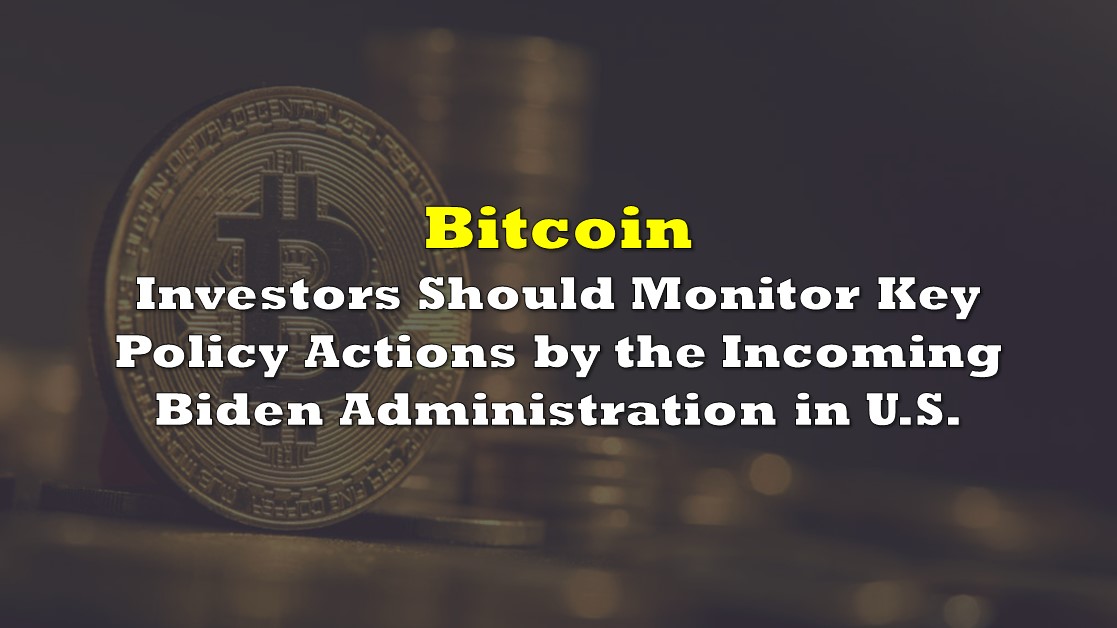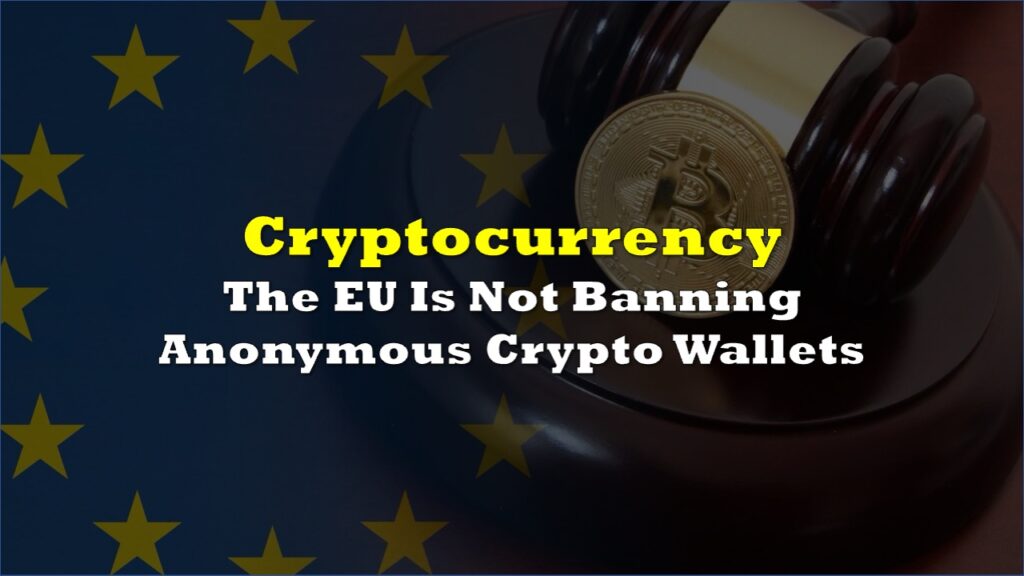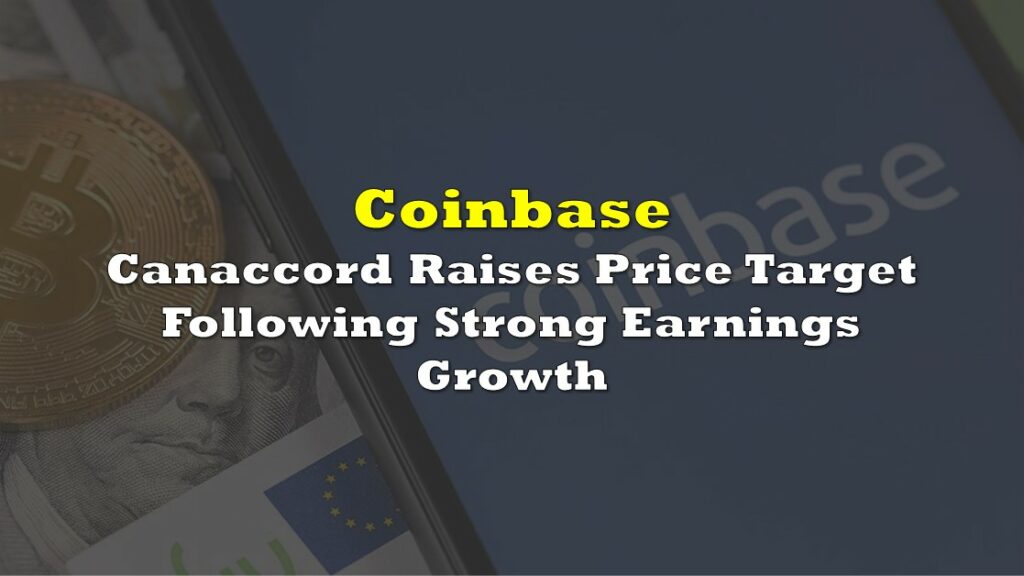As Bitcoin’s ascent has grown even more steep over the last few weeks, it is instructive to consider some factors which could potentially negatively affect the cryptocurrency. Four chief concerns revolve around potential policy changes that the U.S. President-elect Biden Administration could implement.

First, the incoming president has nominated former Federal Reserve Chairwoman Janet Yellen as Treasury secretary, the nation’s most powerful financial position. A long-time monetary dove, Ms. Yellen is perceived as friendly to both the stock and bond markets. However, her past comments on Bitcoin have been less supportive.
For example, in 2017 at around the time of Bitcoin’s previous peak, she called it “not a stable source of value,” and “a highly speculative asset.” In addition, the following year, Ms. Yellen opined that a substantial number of Bitcoin transactions were “illicit, illegal.” Continuing to integrate Bitcoin into the U.S. banking system would be a huge step forward for the cryptocurrency; a key question is what role (impediment?) Ms. Yellen could play in this regard.
Second and more positive, Bloomberg has reported that Gary Gensler could be nominated by President-elect Biden as Chairman of the Securities and Exchange Commission (SEC). Mr. Gensler, currently an advisor to a digital currency initiative at MIT and a former chairman of the Commodity Futures Trading Commission, is known as a supporter of cryptocurrencies. Perhaps more importantly, he would replace an SEC chairman who, among other things, was known to reject applications for Bitcoin ETFs and sued to halt the initial offerings of new cryptocurrencies.
Third, the Office of the Comptroller of the Currency (OCC) under the Trump Administration took a measured but constructive approach in allowing banks under its supervision to provide cryptocurrency custody services for their customers – a move that further “mainstreams” the use of cryptocurrencies in the financial system. The OCC, which regulates nearly 1,200 national banks and federal branches of foreign banks, allowed these institutions to commence this service in July. It also affirmed that national banks can provide permissible banking services to cryptocurrency businesses “as long as they effectively manage the risks.”
The concern is that Representative Maxine Waters (Democrat), the powerful and influential Chairwoman of the House Financial Services Committee, recently urged President-elect Biden to rescind or reverse some of the OCC’s crypto-supportive actions. She apparently wants more stringent oversight over cryptocurrencies. Given her stature and influence in the Democratic Party, it is unclear how this will play out.
Fourth, a potential constructive step by the new Administration would be a move to establish a national digital banking charter. Such an action, which Singapore has already taken, would make it easier for fintech companies to apply for crypto, lending and payments licensing. Currently, fintechs must apply on a state-by-state basis, lengthening the approval process and increasing the legal fees such innovative companies must incur. For example, when PayPal announced its much-heralded service in October to allow its users to shop with, and speculate on cryptocurrencies – an initiative which many analysts cite as an important fuel for Bitcoin’s rise – the New York State Department of Financial Services (NYDFS) was the entity that granted PayPal a conditional Bitlicense, a newly created authority.
Conclusion
After Bitcoin’s stellar performance over the last nine months, investors should closely monitor developments in the above areas. Just as a stock which has done extremely well over a short period can react quite poorly to slightly less positive news, Bitcoin could face a noticeable reset based on actions which could be perceived as less supportive by key U.S. political figures.
Information for this briefing was found via Sedar and the companies mentioned. The author has no securities or affiliations related to this organization. Not a recommendation to buy or sell. Always do additional research and consult a professional before purchasing a security. The author holds no licenses.









